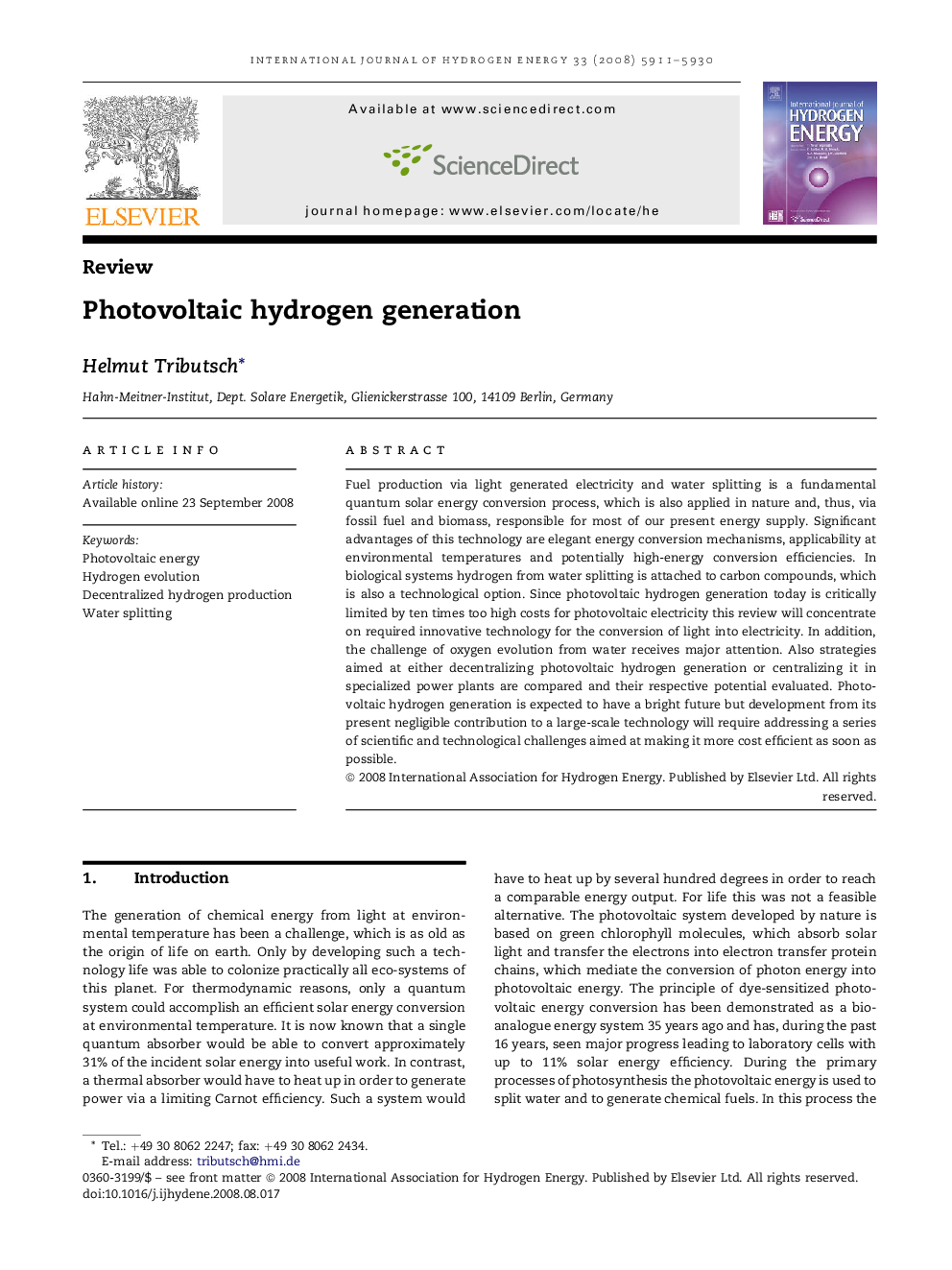| Article ID | Journal | Published Year | Pages | File Type |
|---|---|---|---|---|
| 1283589 | International Journal of Hydrogen Energy | 2008 | 20 Pages |
Fuel production via light generated electricity and water splitting is a fundamental quantum solar energy conversion process, which is also applied in nature and, thus, via fossil fuel and biomass, responsible for most of our present energy supply. Significant advantages of this technology are elegant energy conversion mechanisms, applicability at environmental temperatures and potentially high-energy conversion efficiencies. In biological systems hydrogen from water splitting is attached to carbon compounds, which is also a technological option. Since photovoltaic hydrogen generation today is critically limited by ten times too high costs for photovoltaic electricity this review will concentrate on required innovative technology for the conversion of light into electricity. In addition, the challenge of oxygen evolution from water receives major attention. Also strategies aimed at either decentralizing photovoltaic hydrogen generation or centralizing it in specialized power plants are compared and their respective potential evaluated. Photovoltaic hydrogen generation is expected to have a bright future but development from its present negligible contribution to a large-scale technology will require addressing a series of scientific and technological challenges aimed at making it more cost efficient as soon as possible.
